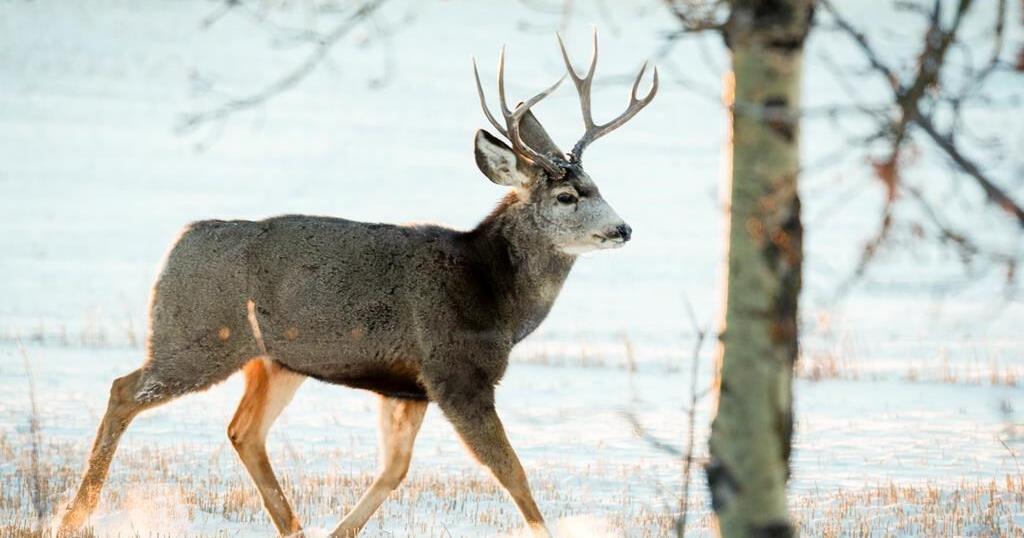Provincial data suggests Alberta’s roadkill numbers are soaring, with snakes hit particularly hard last year.
Alberta Wildlife Watch says almost 400 snake carcasses were reported to it in 2023. The year before there were eight, and in 2021 there were just two.
The program’s database says in all, more than 7,000 animals were reported hit and killed by vehicles last year. That is a 73 per cent increase from 2019.
Deer are the most commonly killed animal on Alberta’s roads, the data suggests, as more than 4,250 have been reported killed in each of the last three years.
Other animals that are commonly killed by cars every year are skunks, coyotes, rabbits, raccoons, porcupines, moose, and pet dogs and cats.
Dale Gienow, with Edmonton-based wildlife rescue and rehabilitation organization WILDNorth, said the snake deaths may be an outlier.
Gienow said one theory is that a hibernacula, an underground refuge for snakes during the winter, was close to a road.
If that’s the case, which could be given that many of the snake strikes are marked as occurring in the fall, it means a large number of the slithering reptiles were making their way to a den when they were hit.
Co-ordinates included in the database point to hundreds of snakes being killed in Elk Island National Park, 45 kilometres east of Edmonton.
When it comes to deer, Gienow said that while thousands are killed on Alberta’s roads every year, it’s not enough to harm the animal’s overall population.
“In terms of the deer populations or the populations of these common species that are hit, it probably doesn’t make a big change or difference in wildlife populations,” said Gienow.
Todd Zimmerling, the president and chief executive of the Alberta Conservation Association, agreed, and added that there are two species of deer in the province — mule and white-tailed — with populations over 100,000.
“From my point of view, this is less of a wildlife issue (than a human safety issue),” Zimmerling said of the data. “It is much more of a ‘What data can we collect to help us reduce the impact on human life and damage to vehicles’ sort of thing, because that is a really important thing and can have obviously tragic impacts.”
Zimmerling said the risk to human lives is especially pronounced when it comes to collisions with bigger animals, like moose.
Between 400 and 500 moose were killed by cars in Alberta in each of the last four years, according to the data.
“It’s one thing to hit a deer, a very different thing to hit a moose,” Zimmerling said.
Both Zimmerling and Gienow said while on the surface it appears roadkill cases are increasing in Alberta, it’s possible that the government’s data isn’t telling the full story as many collisions could go unreported or untracked every year.
But Gienow said the statistics they do have “help us determine what we can do to keep people and animals safe.”
The Alberta government says it uses this data to inform strategies to reduce the number of animal and vehicle collisions.
The province says on its website that 19 projects are either under construction or are being designed to try and reduce the number of animal-vehicle collisions on highways.
All of these projects are near or south of Calgary, and involve building wildlife overpasses or underpasses, or involve installing fencing along highways.
Zimmerling said not a lot can be done to stop the car-animal collisions, but said, “If we’ve got the money to do overpasses or underpasses, then those are the ways to go at this point in time.”
This report by The Canadian Press was first published Aug. 21, 2024.
